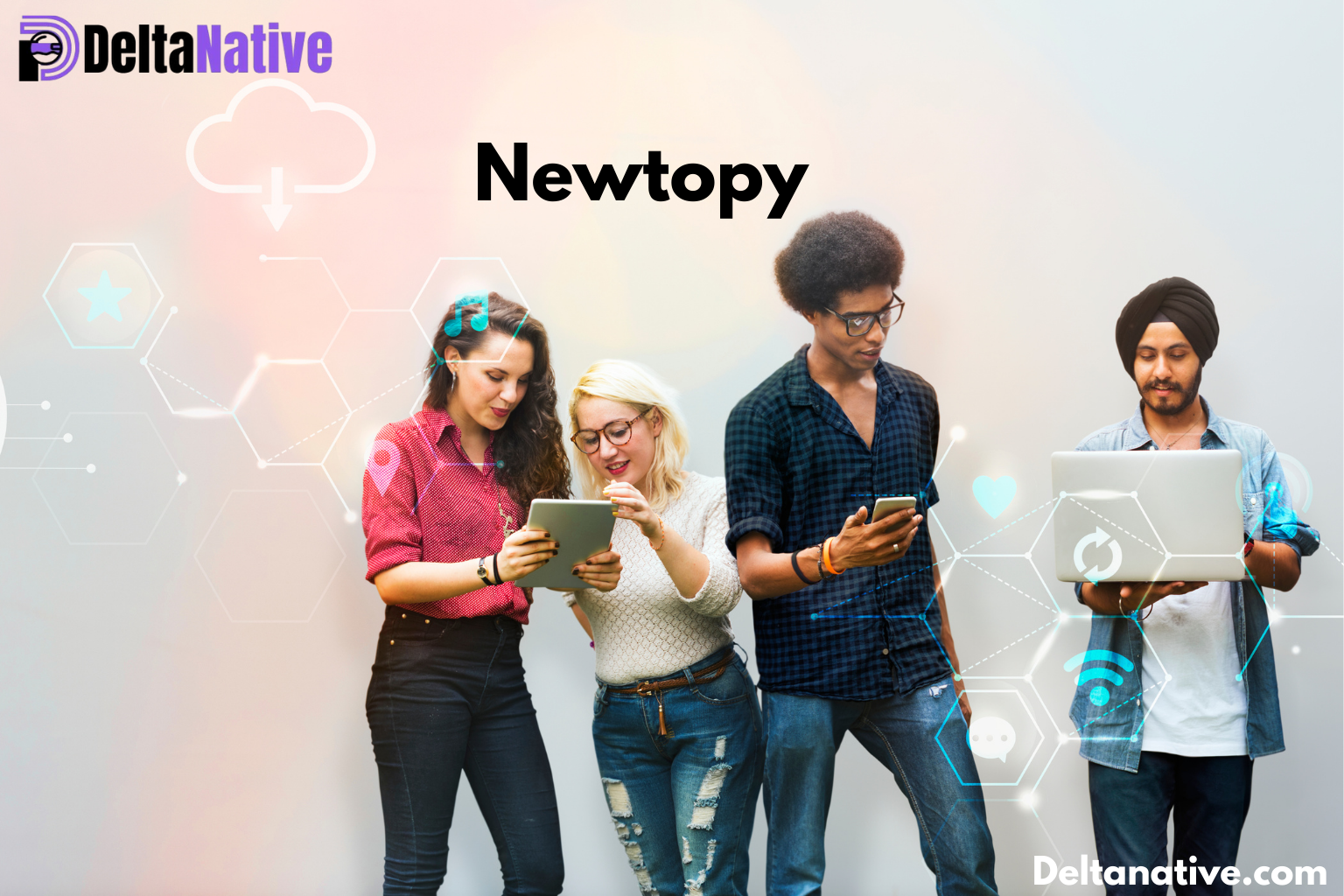Introduction
The digital world has transformed the way humans connect, but with that transformation came new challenges: information overload, intrusive ads, privacy concerns, and algorithm-driven feeds that prioritize profits over genuine interaction. In response, platforms like Newtopy are emerging to offer a fresh, utopian alternative.
Derived from the words new and utopia, Newtopy symbolizes the creation of a new ideal space online—a platform that emphasizes privacy, focus, and authenticity. Unlike traditional social media, it strips away the noise, replacing it with niche, topic-based communities where people can share, learn, and connect meaningfully.
The Philosophy Behind Newtopy
At its core, Newtopy is about reclaiming digital space. Its philosophy centers on:
- Community First: Prioritizing human connection over corporate advertising.
- Focus on Interests: Encouraging conversations around passions and expertise, not clickbait.
- Empowering Users: Handing control of content, privacy, and growth back to the individual.
- Simplicity: Offering clean, minimalistic design to eliminate digital clutter.
This makes Newtopy a balance of old-school forums and modern creator tools—a hybrid built for today’s needs.
Also Read: TheHRWP: A Complete Guide to the Human Resources Workplace Platform
Why Newtopy Matters in the Digital Age
- Ad Overload & Privacy Invasion
Traditional platforms profit from personal data and targeted ads. Newtopy’s ad-free model restores user trust and ensures content remains authentic. - Decline of Authentic Engagement
On mainstream networks, algorithms push viral or controversial content. Newtopy instead emphasizes small, meaningful communities. - Rise of the Creator Economy
Writers, coaches, educators, and brands are demanding better tools to connect directly with audiences. Newtopy offers built-in analytics and branding features. - Mental Well-Being
Endless scrolling creates digital fatigue. Newtopy’s structured, niche approach encourages quality over quantity, helping users feel refreshed instead of drained.
Features That Make Newtopy Unique
- Topies (Topic-Based Communities): Small, interest-driven groups for focused discussions.
- Ad-Free Experience: Content isn’t interrupted by promotions or clutter.
- Custom Privacy Controls: Choose between public, private, or invite-only groups.
- Creator Analytics: Track engagement, growth, and community behavior.
- Cross-Device Simplicity: Mobile-friendly, clean design with easy navigation.
- Scalable Branding Tools: Ideal for startups and personal brands.
How Newtopy Benefits Different Users
For Creators
- Grow niche audiences without algorithm interference.
- Use analytics to refine content strategies.
- Maintain creative freedom without ads diluting engagement.
For Educators & Coaches
- Build private learning spaces.
- Share lessons, workshops, and resources.
- Foster engaged discussions with students or mentees.
For Businesses & Startups
- Create branded communities around products or services.
- Gather feedback directly from customers.
- Strengthen loyalty with private, exclusive groups.
For Everyday Users
- Join groups that align with personal passions (fitness, tech, finance, wellness).
- Escape the chaos of algorithm-driven feeds.
- Enjoy distraction-free conversations.
Step-by-Step Guide: Getting Started with Newtopy
Step 1: Sign Up
Visit the Newtopy site and create an account using your email. Choose a secure password and personalize your profile.
Step 2: Join Existing Topies
Explore available communities that match your interests (e.g., productivity, health, tech).
Step 3: Create Your Own Topy
If you don’t find what you’re looking for, start your own. Set:
- Name and description
- Privacy level (public, private, or invite-only)
- Community rules
Step 4: Share Content and Engage
Post meaningful content, respond to discussions, and invite others. Focus on value, not volume.
Step 5: Monitor Growth
Use built-in analytics to track engagement levels and refine your approach.
Pro Tip: Consistency is key. Post regularly, but keep the focus on quality to build lasting credibility.
Newtopy vs Traditional Platforms
| Feature | Newtopy | Facebook/Reddit |
|---|---|---|
| Advertising | Ad-free | Heavy ad presence |
| Community Structure | Small, topic-based | Large, algorithm-driven |
| Privacy Control | High (customizable) | Limited by platform |
| Creator Tools | Built-in analytics & branding | External or premium tools |
| Content Flow | Quality-focused | Virality-focused |
Future Potential of Newtopy
As digital fatigue rises, platforms like Newtopy could define the next generation of social networking. With growing interest in niche platforms, privacy-first solutions, and creator-owned spaces, Newtopy has the potential to become a leading hub for intentional digital interaction.
If mainstream social networks continue to lose trust, Newtopy’s user-first philosophy could make it a strong alternative.
Also Read: Thejavasea.me Leaks AIO-TLP287: Everything You Need to Know
Conclusion
Newtopy is not just another digital platform—it’s a movement toward better, more intentional online spaces. By focusing on ad-free experiences, privacy, and creator empowerment, it offers a refreshing contrast to the chaotic world of algorithm-driven feeds.
Whether you’re a creator looking to grow authentically, a teacher building a private learning community, a business cultivating loyalty, or simply a person who values meaningful interaction, Newtopy provides the tools and philosophy for a healthier digital life.
FAQs
1. What does Newtopy mean?
It comes from “new” + “utopia,” symbolizing a fresh, ideal digital space.
2. How is Newtopy different from Facebook or Reddit?
Unlike ad-heavy, algorithm-driven platforms, Newtopy offers privacy, focus, and ad-free communities.
3. Who benefits most from Newtopy?
Creators, educators, businesses, and individuals seeking focused and authentic engagement.
4. Can I create my own community on Newtopy?
Yes, you can create a Topy, set rules, and invite members based on your niche.
5. Is Newtopy safe and private?
Yes, it emphasizes privacy-first design, allowing users to control visibility and access.

